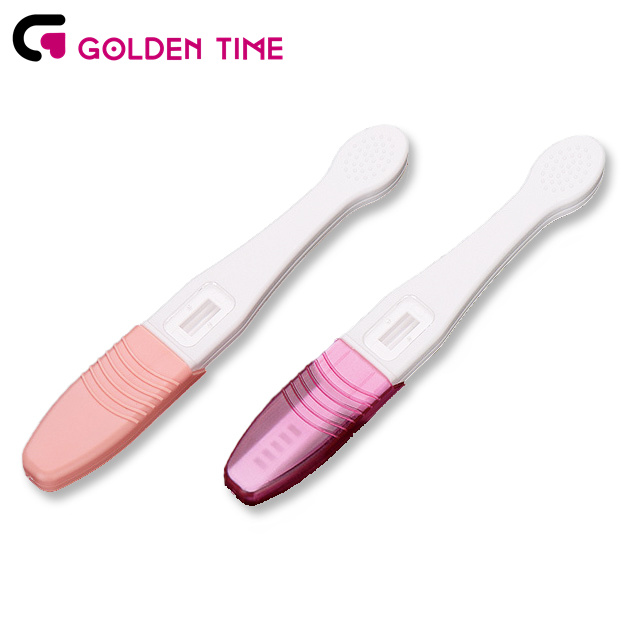Aug . 13, 2024 12:18 Back to list
Exploring Reliable Suppliers for FSH Testing and Related Products in the Market Today
Understanding FSH Test Suppliers A Key Component in Reproductive Health
The Follicle Stimulating Hormone (FSH) test is a crucial diagnostic tool used in assessing reproductive health and function in both men and women. It measures the level of FSH, a hormone responsible for regulating the development, growth, and reproductive processes of the body. FSH plays a vital role in the menstrual cycle and the production of sperm, making it an important focus for healthcare professionals when evaluating fertility issues, menstrual irregularities, and conditions such as polycystic ovary syndrome (PCOS) and menopause.
The Importance of FSH Testing
The FSH test provides essential information about the functioning of the pituitary gland and the ovaries or testes. In women, elevated FSH levels may indicate diminished ovarian reserve or premature ovarian failure, while low levels can suggest issues within the pituitary gland. For men, abnormal FSH levels can signify problems with sperm production or hormonal imbalances.
Given the significance of FSH in reproductive health, the demand for accurate and reliable FSH testing has grown, prompting various suppliers to enter the market. These suppliers provide the necessary materials, equipment, and expertise needed for clinics, laboratories, and hospitals to effectively perform FSH tests.
Key Players in the FSH Test Supply Market
1. Diagnostic Laboratories Many diagnostic laboratories specialize in hormone testing and have developed comprehensive FSH test services. These labs utilize advanced technology and methodologies, such as immunoassays, to deliver precise and timely results.
2. Medical Device Manufacturers Companies that produce diagnostic devices play a significant role in the FSH testing landscape. They provide equipment such as automated analyzers that enhance the efficiency and accuracy of FSH testing. These devices are essential for high-volume laboratories that must process numerous samples quickly.
3. Reagent Suppliers Reagents are critical components in conducting FSH tests. Suppliers of high-quality reagents ensure that laboratories can carry out tests with optimal specificity and sensitivity. These reagents are often developed through rigorous research to ensure they meet the needs of healthcare providers.
fsh test s suppliers

4. Pharmaceutical Companies Some pharmaceutical companies engage in the supply of FSH test kits as part of broader infertility treatment solutions. These comprehensive kits are designed to not only measure FSH but also provide additional hormonal assessments to give a complete picture of a patient’s reproductive health.
Choosing the Right FSH Test Supplier
When selecting a supplier for FSH testing, healthcare facilities must consider several factors
- Quality Assurance Look for suppliers that adhere to stringent quality control standards and possess necessary certifications, such as ISO accreditation. This ensures the reliability of their products.
- Technical Support Adequate technical support from suppliers is essential, especially during the initial setup and calibration of testing equipment. Reliable suppliers should offer training and ongoing assistance to ensure optimal operations.
- Cost-Effectiveness An analysis of the cost versus the quality of testing services offered by suppliers is crucial. While it may be tempting to choose the lowest-cost option, the accuracy and reliability of test results should remain the priority.
- Innovation In a rapidly evolving field, suppliers that invest in research and development often provide the latest technologies, which can enhance testing capabilities and improve patient outcomes.
Conclusion
The landscape of FSH test suppliers is multifaceted and critical to the field of reproductive health. By understanding the roles played by various suppliers, healthcare providers can make informed decisions that improve the testing process, leading to better diagnosis and treatment options for patients facing fertility challenges and hormonal disorders. As demand for reproductive health services continues to grow, reliable and innovative suppliers will be at the forefront of providing essential tools for effective assessment and care.
-
Dengue NS1 Rapid Diagnostic Test Kit
NewsMar.07,2025
-
Dengue NS1 Rapid Diagnostic Test Kit
NewsMar.07,2025
-
Dengue NS1 Rapid Diagnostic Test Kit
NewsMar.07,2025
-
Transferrin Rapid Test Cassette Tumor Marker TF Card
NewsMar.07,2025
-
Malaria Pf Pan Rapid Diagnostic Test Kit
NewsMar.07,2025
-
malaria pf / pan ag rapid test
NewsMar.07,2025

